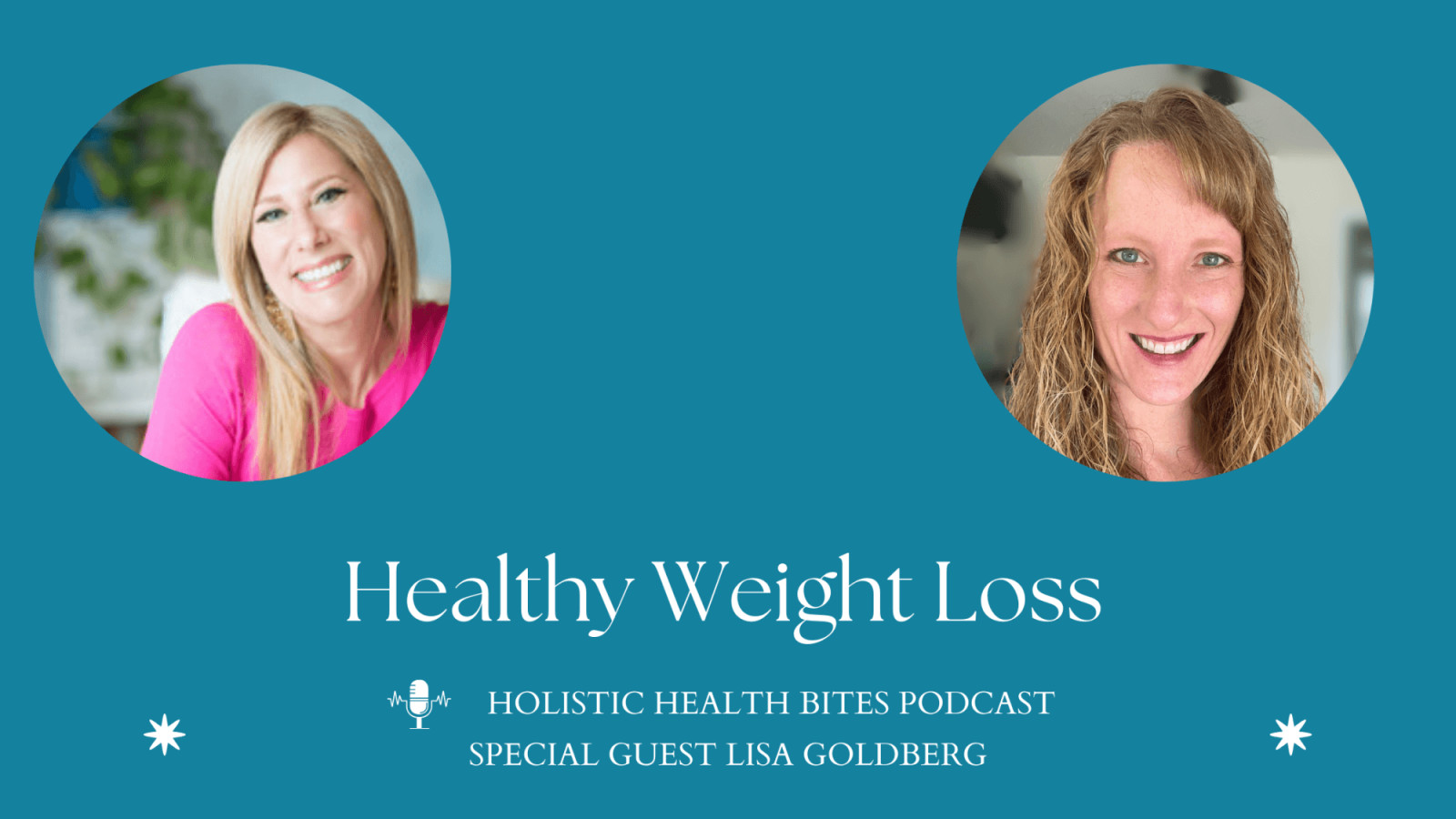
“I’ve tried it all – and this weight just won’t budge!”
Nothing could be more frustrating than strictly following a diet and exercising like mad – yet not getting results (possibly even gaining weight). This is sadly a common struggle, especially for women. There are many reasons why your body may be resisting weight loss. In this post, I’m going to break down 5 of the main reasons why it is seemingly impossible to lose weight.
Calorie Restriction Longterm
Low-calorie diets may seem like a quick and easy way to lose weight, but they can actually be quite harmful in the long run. When you severely restrict your calorie intake, your body decreases the amount of energy used, reducing metabolic rate. This makes sense – if you add less fuel to a fire, it doesn’t burn longer. However, this also means that you would have to continue to eat less and less calories to continue losing under this model. Inevitably, you’ll start eating more because hunger will always win – and now your metabolic rate is lower, so you’ll end up gaining. It takes a while for your metabolic rate to climb back up to your new calorie intake.
Over the long run, calorie restriction fails every time. It will leave you hungry, irritable, weak, tired, and disappointed in the lack of results for all the effort and deprivation. Reducing calories also doesn’t impact hunger hormones, reproductive hormones, or stress hormones in a positive way – all can become seriously dysregulated!
When it comes to eating a healthy diet – there are only 3 considerations: WHAT you eat, WHEN you eat, and HOW MUCH you eat. Of course, there are subcategories within each as well. To overcome weight loss resistance all three must be aligned for your body.
Chronically Elevated Insulin
Insulin is a critical hormone to the body. Most of us only think about it as a medication some people with Diabetes have to take, but it is actually a necessary hormone that we all produce (except those with Type 1 Diabetes). Insulin is produced by the pancreas and gets released as a part of normal food digestion. Most people know of insulin’s role in blood sugar management, but it also plays a role in promoting growth and energy storage in the body.
Growth and storage – neither of those are in line with losing weight, are they? Insulin actually blocks the body’s ability to release stored fuels from the body. Biologically this makes sense – your body should be releasing insulin when you’re in a fed state (you just ate something). You don’t need to be using your stored fuel when you’re also eating! Your body will always prioritize burning the food you just consumed before it will tap into stored fuels.
But doesn’t that take us back to restricting calories? No! A diet low in calories doesn’t necessarily mean minimal insulin spikes. Generally, it actually means you’re eating less food, but more often. Every time you eat, you get an insulin spike. How big of a spike varies by what you ate (how much carbohydrate) and your body’s overall insulin sensitivity status (how much insulin you need to manage the fuel you just ate). Eating often, as we’ve been told we should, causes insulin levels to always be elevated. This, by the very definition, means you cannot ever tap into your stored fuel and you stay in growth and storage mode! No amount of calorie restriction or intense exercise will change the role of high insulin levels!
To overcome weight loss resistance, you need to decrease your overall insulin levels. Improve your metabolic flexibility for optimal health.
Unhealthy fats
It’s no secret that vegetable oils are terrible for your health. They are high in polyunsaturated fatty acids that are pro-inflammatory, contribute to insulin resistance and weight gain. These fatty acids also increase your sugar cravings!
But wait a minute – I thought we were supposed to eat more polyunsaturated fats!?! Sadly, this is another nutrition lie we’ve all been fed. Polyunsaturated fatty acids are the least stable type of fatty acid and the most likely to be oxidized (aka rust). They are essential to human health, but not in the heaping quantities we’ve been consuming! In fact, we’re consuming 1000 times more polyunsaturated fatty acids in the form of vegetable oils than we ate 100 years ago. At these levels, your cell’s mitochondria (energy powerplants) are unable to generate energy. This forces you to rely on consuming and burning sugar only.
These vegetable oils (aka seed oils) are found in nearly every product in the grocery stores and restaurants today. Simply being exposed to light or heat can cause them to oxidize. Read labels very carefully and do your best to avoid sources.
Look for these oils on your labels: canola, corn, cottonseed, soybean, sunflower, safflower, rice bran, and grapeseed. While you’re at it – stop cooking with these too! Switch to avocado oil, olive oil, real butter, or other animal fat for your cooking needs. To overcome weight loss resistance, you need to take in healthy fats and reduce vegetable oils!
Toxins
We live in a very toxic world – some of which we can minimize. Toxins can prevent weight loss (and even cause weight gain) in a few different ways.
First, they can disrupt the hormones that are responsible for managing our weight. Hormones like insulin, leptin, and ghrelin are all important in maintaining a healthy weight. When these hormones are disrupted, it becomes much harder to lose weight and keep it off. These imbalances can cause increased appetite, cravings for unhealthy foods, and an inability to sense satiation.
Second, toxins can interfere with our body’s ability to burn calories. When our bodies are trying to get rid of toxins, it takes energy away from other activities – like burning calories. This makes it much harder to lose weight, even if we are eating a healthy diet and exercising regularly.
Lastly, the body surrounds toxins with fat to protect you from them. When you burn fat, those toxins get released into the body to cause harm if your detoxification pathways aren’t fully open allowing you to eliminate them.
Ensuring proper elimination is critical to prevent re-absorbing those toxins. No, this is not done by drinking a green drink or by doing a short juice “cleanse”. True detoxification is a process. It starts first by taking in less toxins, then by working on opening up the pathways to elimination. Reduce your toxin load to overcome weight loss resistance.
Stress
When it comes to weight loss resistance, stress is one of the biggest culprits. When we’re stressed, our bodies go into fight or flight mode and start producing cortisol. Cortisol is a hormone that helps us deal with stress, but it also has some negative effects – especially over the long term.
Chronically high cortisol can cause you to store more fat because it signals the body to release glucose from storage giving you the necessary energy to fight or flee the stressor. This release of glucose causes a requisite increase in insulin. If you have chronically high stress, you have chronically high insulin (see insulin above).
Stress can also make you crave unhealthy foods or care less about what you’re eating. This leads to poor food choices, emotional eating, and often over-eating.
There are many things you can do to reduce the amount of stress in your life and help you lose weight. First, you need to identify what your stressors are. Once you know what they are, we can start developing strategies to deal with them. Second, you need to implement stress management techniques like exercise, meditation, journaling, or emotional freedom technique tapping. Many people also find relief by prioritizing things that bring them joy – painting, crafts, gardening, or playing music. Get back to doing more of the things you love and you can better handle the stress in your life can help you overcome weight loss resistance. Sleep quality goes hand-in-hand with stress management as well. Prioritize sleep in your everyday life!





















0 Comments